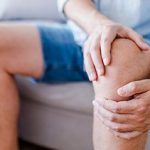
It only takes a second. Experts are warning that unsecured televisions, bedroom dressers and other heavy furniture can crush, maim and even kill curious children, and the issue may only worsen during stay-at-home lockdowns. According to the U.S. Consumer Product Safety Commission (CPSC), between 2000 and 2019, 451 kids aged 17 years and younger died in tip-over accidents, the CPSC said. And an average 11,100 per year were treated in hospital emergency rooms for tip-over-related injuries from 2017 through 2019. “Tip-over injuries and deaths are among the most tragic we see,” Robert Adler, the agency’s acting chairman, said in a CPSC news release. “Parents and caregivers don’t suspect that the bookcase or dresser in their child’s room can be hazardous — it’s a truly hidden hazard. And these tip-overs happen so fast; it’s literally in the blink of an eye, often with a parent close by.” About eight in 10 tip-over deaths involved kids under age 6, and 75% of fatalities for children involved a TV, according to the new report. With millions of Americans preparing to watch the Super Bowl on Feb. 7, now is the time to anchor all TVs in your home, the agency said. This short CPSC video shows how quickly these tragedies can occur: A CPSC survey last year found that many parents and caregivers considered anchoring furniture and TVs… read on > read on >


















